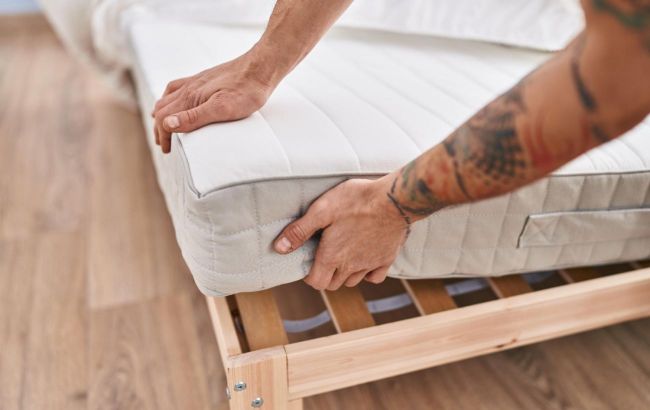5 signs that you need to urgently change your mattress
 When it's time to change your mattress (Illustrative photo: freepik.com)
When it's time to change your mattress (Illustrative photo: freepik.com)
Can an old mattress be the reason for your poor sleep? If you wake up feeling tired and unrested every morning, it might be time for a change.
Best Life website outlines the signs that indicate it’s time to buy a new mattress.
Your mattress is very old
When was the last time you bought your mattress? If it was more than 10 years ago, it’s time to consider a new one. While you might want to keep your mattress forever, remember the strain it endures daily - turning at night, sweating, changes in weight, or possibly the arrival of a child, pets, or a partner.
A long lifespan leads to wear and tear of materials, affecting how well the mattress supports your body during sleep.
Mattress sags and has many lumps
Natural wear and tear is inevitable, but if your mattress has become lumpy and uneven, it’s a sign for replacement. Over time, the filling of the mattress can shift, creating these irregularities.
This may mean your body is no longer receiving the necessary support, leading to discomfort due to uneven pressure. This problem can occur in both cheap and expensive models that have reached the end of their lifespan.
You wake up with aches
One of the most important functions of a mattress is to provide proper support for your body while you sleep. If you consistently wake up with back or joint pain, it may indicate that your mattress is no longer fulfilling its role.
Back pain is a common complaint among those who sleep on old or worn-out mattresses. Insufficient support leads to improper spinal alignment, causing pressure on muscles and joints.
You can see the mattress springs
This applies to both spring and hybrid mattresses - if you can see or feel the springs pushing through the surface, it’s time to look for a new one.
Spring mattresses are popular among many, but they have a shorter lifespan compared to other types of mattresses. Typically, these models last about 6-8 years, and the quality of the springs can affect their durability.
Your allergies are worsening
An old mattress can exacerbate allergy symptoms. Dust mites, a common allergen, accumulate in mattresses over time.
These microscopic creatures thrive in warm and humid environments, feeding on dead skin cells. Their waste can trigger allergic reactions, leading to sneezing, coughing, itching, or nasal congestion.
Earlier, we discussed seven things you can do to ensure your bed always smells fresh.


